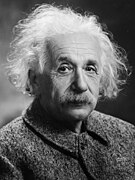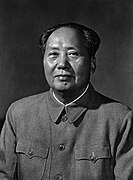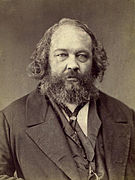 The socialist political movement includes political philosophies that originated in the revolutionary movements of the mid-to-late 18th century and out of concern for the social problems that socialists associated with capitalism. By the late 19th century, after the work of Karl Marx and his collaborator Friedrich Engels, socialism had come to signify anti-capitalism and advocacy for a post-capitalist system based on some form of social ownership of the means of production. By the early 1920s, communism and social democracy had become the two dominant political tendencies within the international socialist movement, with socialism itself becoming the most influential secular movement of the 20th century. Many socialists also adopted the causes of other social movements, such as feminism, environmentalism, and progressivism. (Full article...) Market socialism is a type of economic system involving the public, cooperative, or social ownership of the means of production in the framework of a market economy. Market socialism differs from non-market socialism in that the market mechanism is utilized for the allocation of capital goods and the means of production. Depending on the specific model of market socialism, profits generated by socially owned firms (i.e. net revenue not reinvested into expanding the firm) may variously be used to directly remunerate employees, accrue to society at large as the source of public finance, or be distributed among the population in a social dividend. Market socialism is distinguished from the concept of the mixed economy, because unlike the mixed economy, models of market socialism are complete and self-regulating systems. Market socialism also contrasts with social democratic policies implemented within capitalist market economies: while social democracy aims to achieve greater economic stability and equality through policy measures such as taxes, subsidies and social welfare programs, market socialism aims to achieve similar goals through changing patterns of enterprise ownership and management. Although economic proposals involving social ownership with factor markets have existed since the early 19th century, the term "market socialism" only emerged in the 1920s during the socialist calculation debate. Contemporary market socialism emerged from the debate on socialist calculation during the early-to-mid 20th century among socialist economists who believed that a socialist economy could neither function on the basis of calculation in natural units nor through solving a system of simultaneous equations for economic coordination, and that capital markets would be required in a socialist economy. Early models of market socialism trace their roots to the work of Adam Smith and the theories of classical economics, which consisted of proposals for cooperative enterprises operating in a free-market economy. The aim of such proposals was to eliminate exploitation by allowing individuals to receive the full product of their labor while removing the market-distorting effects of concentrating ownership and wealth in the hands of a small class of private owners. Among early advocates of market socialism were the Ricardian socialist economists and mutualist philosophers. In the early 20th century, Oskar Lange and Abba Lerner outlined a neoclassical model of socialism which included a role for a central planning board (CPB) in setting prices equal marginal cost to achieve Pareto efficiency. Even though these early models did not rely on genuine markets, they were labeled "market socialist" for their utilization of financial prices and calculation. In more recent models proposed by American neoclassical economists, public ownership of the means of production is achieved through public ownership of equity and social control of investment.
Eugene Victor Debs (November 5, 1855 – October 20, 1926) was an American socialist, political activist, trade unionist, one of the founding members of the Industrial Workers of the World (IWW), and five-time candidate of the Socialist Party of America for President of the United States. Through his presidential candidacies as well as his work with labor movements, Debs eventually became one of the best-known socialists living in the United States. Early in his political career, Debs was a member of the Democratic Party. He was elected as a Democrat to the Indiana General Assembly in 1884. After working with several smaller unions, including the Brotherhood of Locomotive Firemen, Debs led his union in a major ten-month strike against the CB&Q Railroad in 1888. Debs was instrumental in the founding of the American Railway Union (ARU), one of the nation's first industrial unions. After workers at the Pullman Palace Car Company organized a wildcat strike over pay cuts in the summer of 1894, Debs signed many into the ARU. He led a boycott by the ARU against handling trains with Pullman cars in what became the nationwide Pullman Strike, affecting most lines west of Detroit and more than 250,000 workers in 27 states. Purportedly to keep the mail running, President Grover Cleveland used the United States Army to break the strike. As a leader of the ARU, Debs was convicted of federal charges for defying a court injunction against the strike and served six months in prison. (Full article...)The following are images from various socialism-related articles on Wikipedia.
Want to find an article related to socialism? Try browsing through any of the main categories below:
Select [►] to view subcategories
Everyone is welcome to participate in WikiProject Socialism, where editors collaborate to improve all aspects related to socialism on Wikipedia. The following Wikimedia Foundation sister projects provide more on this subject:
Discover Wikipedia using portals | ||||||




















































